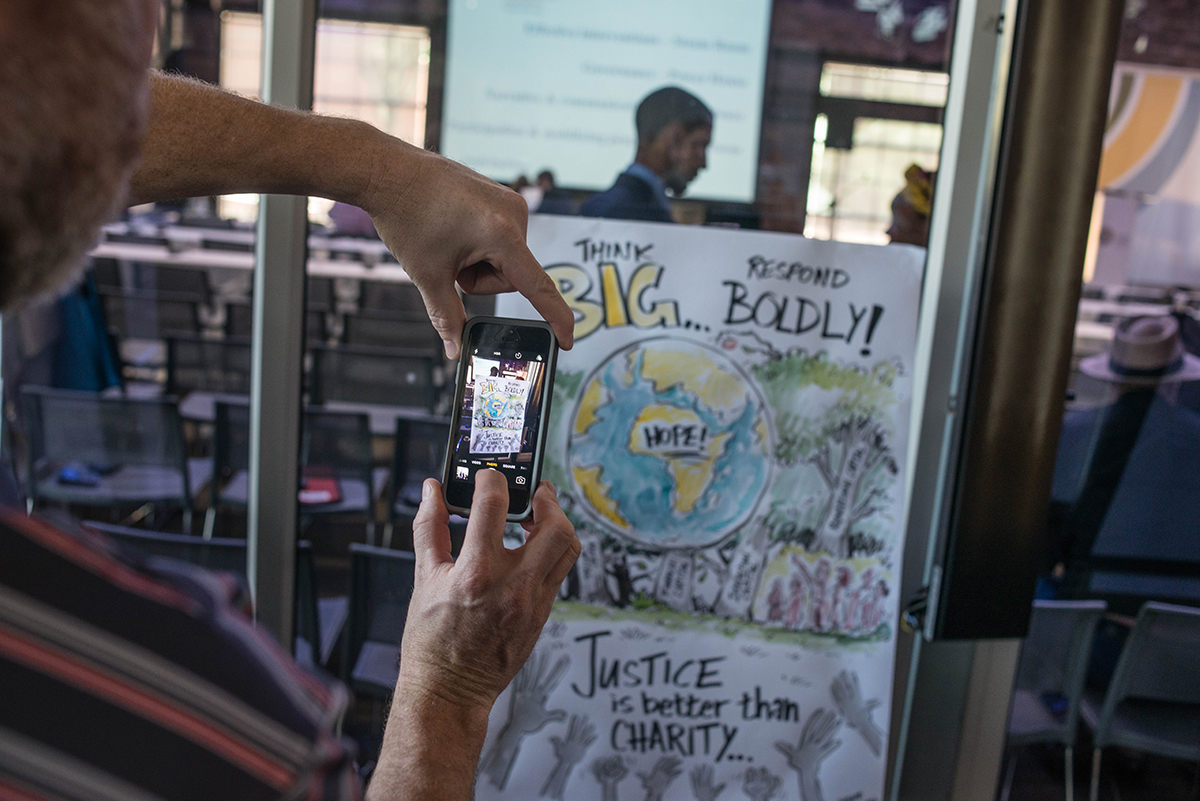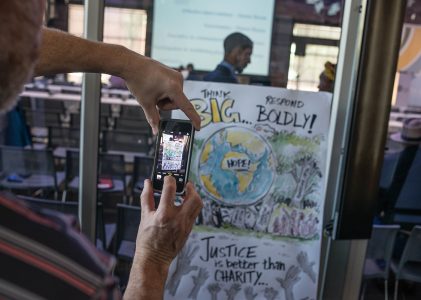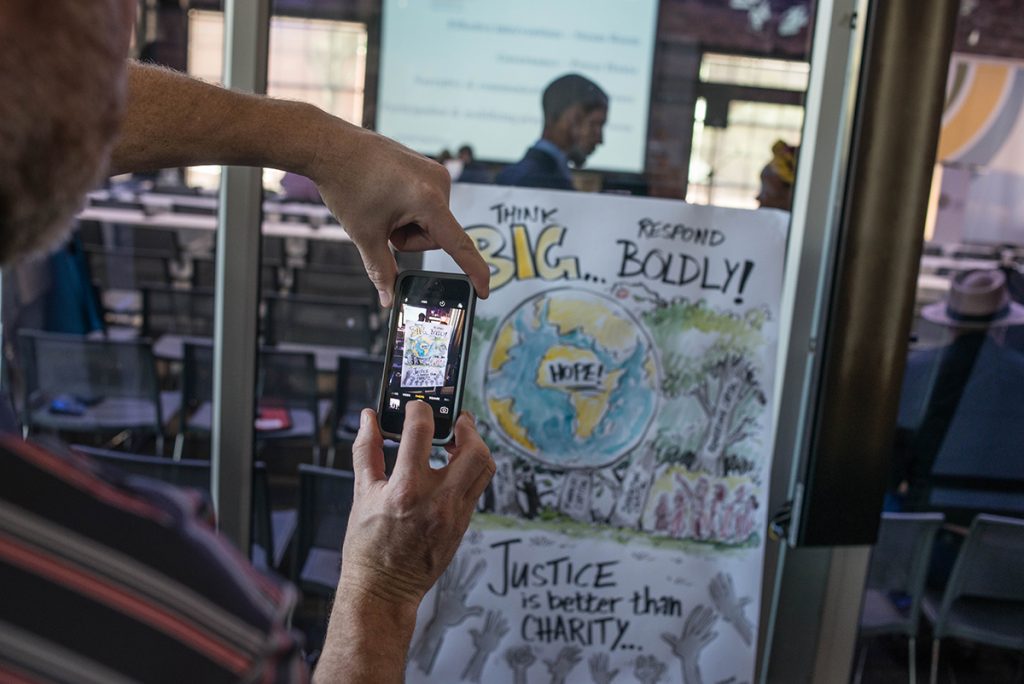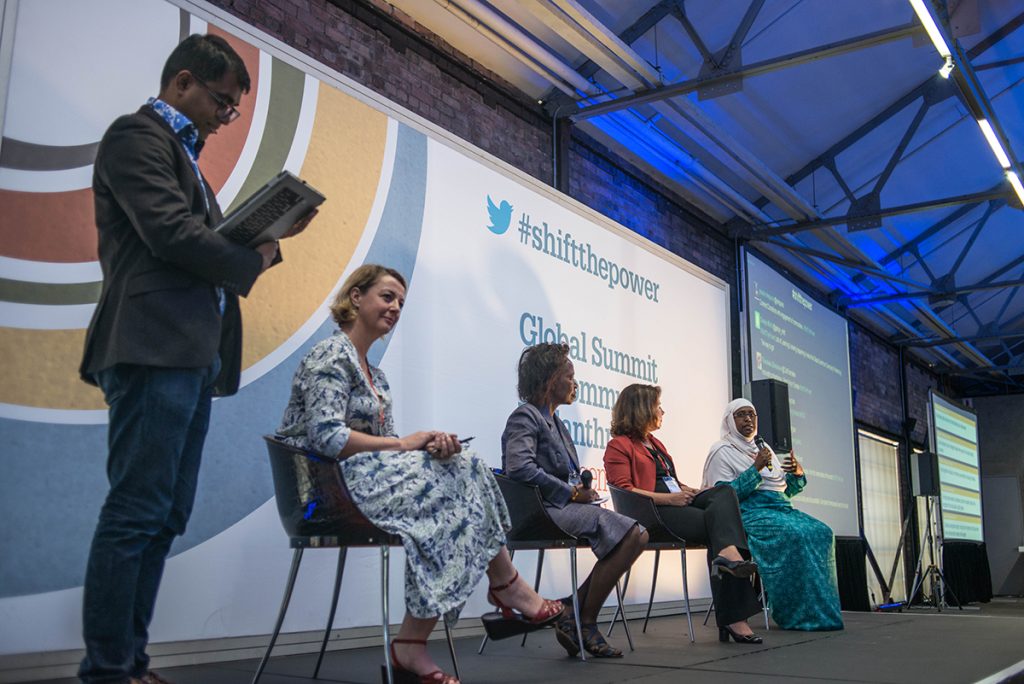This piece originally appeared on the Alliance magazine website as part of its 100th issue.

A confluence of forces in 2016 brought together one of philanthropy’s most inspiring and dynamic movements for change.
It started with a hashtag to promote an event. It was 2016 and the Global Fund for Community Foundations (GFCF) was organizing the first Global Summit on Community Philanthropy in Johannesburg. We were looking for a catchy hashtag that would convey the idea that this event was going to be a bit different from the run-of-the-mill philanthropy conference, and that would appeal to a broad audience of changemakers around the world.
And so, we landed on #ShiftThePower. The beauty of it was that it spelt nothing out explicitly. Instead, it simply put the question of power – and the imperative to ‘shift’ it – on the table as a topic for global discussion. And seated alongside it, perhaps somewhat incongruously, but very deliberately, was community philanthropy.
The event itself brought together around 400 people from 70 countries. Those in attendance reflected the diversity of civil society, philanthropy, and the international aid ecosystem, from global headquarters to the grassroots, with the majority hailing from the Global South.
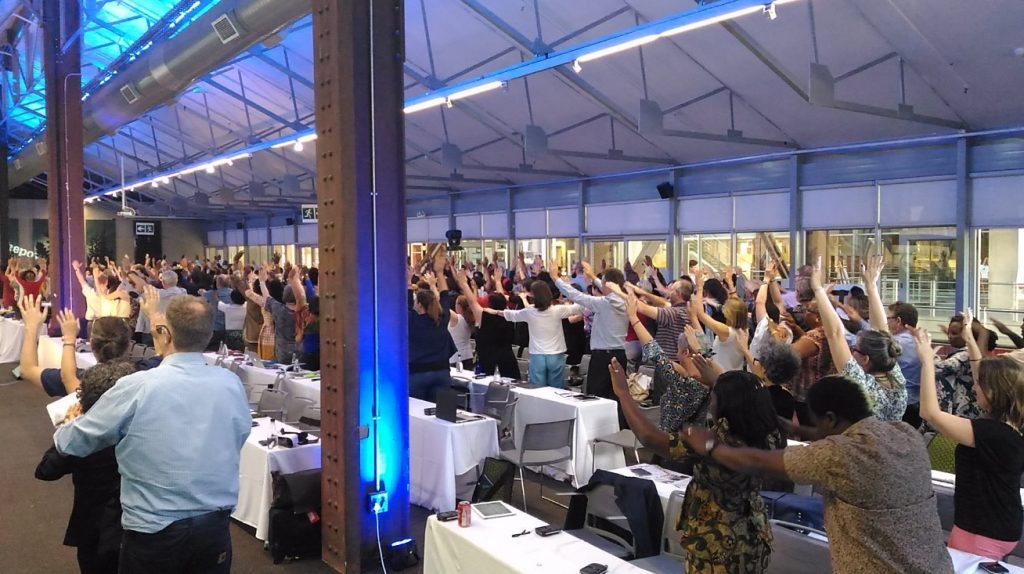
The power of funders
The deliberate use of the hashtag #ShiftThePower was intended to provoke. Frustrations about the shortcomings of philanthropy and development aid are nothing new. However, it has always been very hard – and there have been few incentives – for those on the receiving end of aid to call out the practices and behaviours of funders and other big international players, let alone suggest that the power that they wield might be contributing to the problems that they are meant to be solving. In that sense, a truly global summit could provide a space to start such a conversation: if it was going to work, the elephant in the room – ‘the P-word’ – needed to be named loudly and incontrovertibly from the start.
The power of giving
#ShiftThePower was also meant to inspire. The point of the summit was not just to rail against the system or to demand change only from others. On the contrary, it was a celebration, a coming-out party for the vibrant and emergent global field of community philanthropy, a diverse mixture of organizations and practices which, by emphasizing local resources and giving, local ownership and decision-making and the essential role of trust in driving good development outcomes, were themselves challenging the norms of institutional power at the local level, too.
“If it was going to work, the elephant in the room – ‘the P-word’ – needed to be named loudly and incontrovertibly from the start.”
Back in 2016, #ShiftThePower touched a nerve. As the hashtag went viral in the days around the summit itself, it seemed to serve as a lightning rod through which long-held collective anger and frustration could be harnessed and expressed, and it continues to do so. As philanthropy and development aid face growing demands to decolonize and transform their systems and structures, and to demonstrate in hard financial and policy terms their commitment to genuinely shifting power, organized networks of southern actors that can call out bad practice and be true partners in building the new will be essential.
The beauty of a hashtag is that it is a brand that nobody can own. It has been very satisfying to see how it has been embraced by so many, from grassroots organizations to large donor institutions including, most recently, the Dutch Ministry of Foreign Affairs. At the GFCF we will keep on promoting and pushing it, but it has already taken on a life of its own. I hope it will continue to resonate, to stimulate, to provoke – and even to infuriate – for many years to come.
